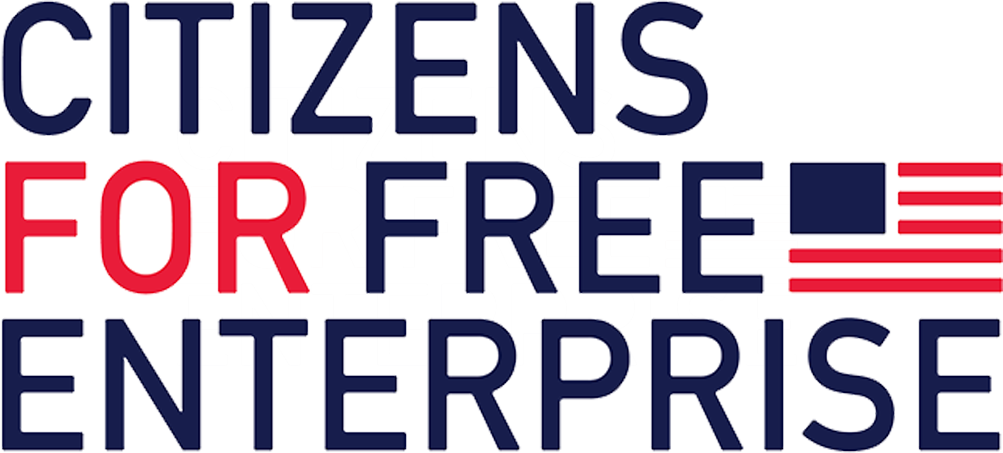“The record of history is absolutely crystal clear that there is no alternative way so far discovered of improving the lot of the ordinary people that can hold a candle to the productive activities that are unleashed by the free-enterprise system.”
–Milton Friedman
What is free enterprise?
Free enterprise is the unimpeded, voluntary flow of capital and resources between individual consumers and businesses.
Free enterprise 101
Free enterprise, prosperity and innovation are inextricably linked and key to the success of the American system. Society thrives when we allow people to reap the benefits of their own hard work and capital and recognize that individual consumers are best equipped to decide how to spend their hard-earned money.
The limitless potential of the free enterprise system is evident in the wealth gains Americans of all stripes have made for decades. Over the past 30 years, household wealth held by the bottom 50 percent of American households has quadrupled. Since 1993, wealth has also increased significantly among people of all races. Wealth held by Black Americans has grown more than 343 percent. Wealth held by Hispanics has grown 600 percent. How has the free enterprise system enabled these wealth gains? By unleashing the potential of tens of millions of Americans to participate in the economy and take control of their own livelihood as consumers and even business owners themselves.
The importance of independent businesses
Independent businesses are the lifeblood of the American system and crucial to the prosperity of millions of Americans. There are more than 5.6 million businesses around the country with fewer than 20 employees; an additional half million more have fewer than 100 employees. Those 5.6 million businesses make up 90 percent of all businesses nationwide, with 98 percent overall having fewer than 100 employees.Nearly one-third of all workers—more than 41.5 million people—work at a independent business with fewer than 100 employees. These independent businesses account for more than $2.1 trillion in annual employee wages.
The impact of every dollar invested into an independent business is realized more widely than the business itself. Employees spend those trillions in wages earned at other businesses. Customers use products and services purchased in service of their own businesses or at home. Independent business owners invest further in their own communities. This is all made possible because the free enterprise system allows each individual to use his or her skills and build wealth for themselves and others by working for the mutual benefit of the business and its customers. ‘
Entrepreneurship
Some entrepreneurs start with an idea for a product and build a business around it; others start with businesses that develop innovative ideas. In all cases, the ability to start a new business or innovate are crucial parts of a free enterprise system. Like independent businesses, start-up businesses are an important measure of economic health, because new businesses are a primary driver of economic growth. In 2019, start-ups (businesses less than a year old) accounted for 90 percent of employment growth in the U.S. economy. How important is it that these start-ups can grow? Last year, one out of every 12 workers was employed by a business younger than three years old. When the government makes it more difficult to start a business or release a new product, society is worse off. For instance, higher personal and corporate income tax rates are associated with lower rates of innovation, resulting in fewer patents issued and fewer inventors overall.
The free enterprise system has proven to be the single most powerful engine of prosperity. It has raised the standard of living for more people than any economic paradigm in human history and has catalyzed the American entrepreneurial spirit to spur innovation that has reshaped the world. Free enterprise is the bedrock of a prosperous society, enabling economic growth, job creation, and the betterment of people’s lives.
Threats to free enterprise
Taxes
Taxes distort the free market and raise costs for consumers and business owners alike, leading to bloated government. Reducing tax rates is crucial for keeping the size of government under control and limiting the market distortion. Tax credits, subsidies, and excise taxes can contribute to the government picking winners and losers, which is antithetical to a free enterprise system.
Environmental extremism
Land use and natural resources are critical for production and a prosperous society. Policymakers often use environmental protection as an excuse for proposed policies that would undermine free enterprise, impose more government control, and oftentimes, not actually protect the environment. These policies limit consumer choice and significantly raise costs to make household essentials unaffordable for many consumers. Protection of private property rights rewards conservation and is crucial to the innovation that has led to improved environmental outcomes.
Bureaucratic red tape
Like taxes, government-imposed business requirements raise compliance costs, with little added consumer benefit, and make it more difficult for independent businesses to operate while big businesses can more easily absorb costs. These costs often mean higher prices for consumers, fewer jobs and lower wages.
Anti-competitive/anti-free market policies
Voluntary transactions are the basis for a free enterprise system. Government restrictions protecting politically favored groups or existing businesses from competition can lead to monopolies, distort markets, and make it difficult for independent businesses to thrive and prosper. Product bans take choices away from consumers and make basic necessities more expensive and unaffordable.
Miscellaneous threats to free enterprise
Not all threats to free enterprise come directly the government. A robust free enterprise system requires a citizenry that understands the benefits of free enterprise and is committed to upholding its basic principles and the rule of law. The government must do its part by ensuring laws are enforced equally and private property rights are protected.

